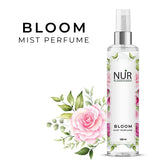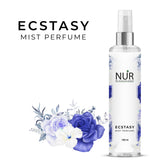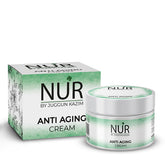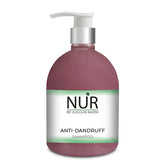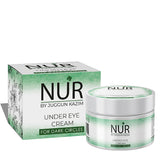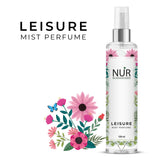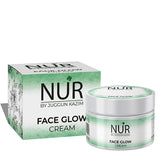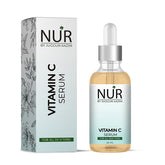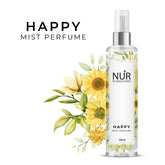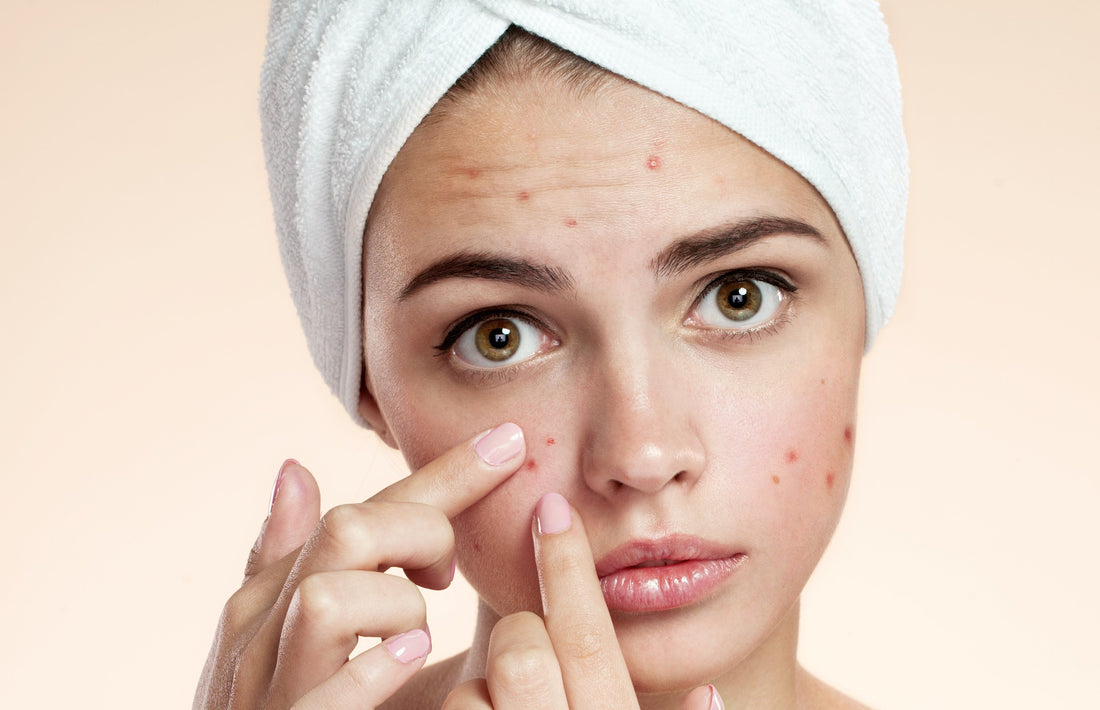Acne can affect anyone at any stage in their lives. Acne is not limited to affecting the face - many people suffer from painful, uncomfortable and unsightly spots on their backs, necks and chests too. In fact, acne can affect people anywhere other than the palms of your hands and the soles of your feet.
 There are many myths about acne, including its origin. Acne is not caused by ‘being unclean’ or ‘eating greasy foods. It is caused by a genetic tendency to form both blocked pores and greasy skin. The blockage prevents sebum (naturally produced oils) from leaving the pores and this feeds and multiplies bacteria trapped in the follicle. Your body reacts by sending white blood cells to fight the bacteria and this causes inflammation. For some, acne can be a relentless condition that needs medical treatment, for others changing lifestyle and nutrition may provide an antidote or help ease the condition.
There are many myths about acne, including its origin. Acne is not caused by ‘being unclean’ or ‘eating greasy foods. It is caused by a genetic tendency to form both blocked pores and greasy skin. The blockage prevents sebum (naturally produced oils) from leaving the pores and this feeds and multiplies bacteria trapped in the follicle. Your body reacts by sending white blood cells to fight the bacteria and this causes inflammation. For some, acne can be a relentless condition that needs medical treatment, for others changing lifestyle and nutrition may provide an antidote or help ease the condition.
What is acne?
Acne is a common skin condition where the pores of your skin become blocked by hair, sebum (an oily substance), bacteria and dead skin cells. Those blockages produce blackheads, whiteheads, nodules and other types of pimples. If you have acne, know you’re not alone. It’s the most common skin condition that people experience. It’s estimated that 80% of people ages 11 to 30 will have at least a mild form of acne, and most people are affected by it at some point in their lives.
What is breakout?
 They seem to come from nowhere and pop up when you really want to look your best. They can be painful and even feel like they’re throbbing. Breakouts most often appear where our skin has the most oil glands. That means on the face, chest, and even upper back and shoulders. During a breakout or an acne flare, the hair follicle fills with dead skin cells, sebum (oil), and sometimes bacteria. This leads to swelling, redness, and inflammation. Eventually, the pores become clogged and push their contents to the skin’s surface.
They seem to come from nowhere and pop up when you really want to look your best. They can be painful and even feel like they’re throbbing. Breakouts most often appear where our skin has the most oil glands. That means on the face, chest, and even upper back and shoulders. During a breakout or an acne flare, the hair follicle fills with dead skin cells, sebum (oil), and sometimes bacteria. This leads to swelling, redness, and inflammation. Eventually, the pores become clogged and push their contents to the skin’s surface.
Who does acne affect?
 Though it mainly affects teenagers and young adults undergoing hormonal changes, many people continue struggling with acne into their 20s, 30s and beyond. Some even develop acne for the first time as adults.
Though it mainly affects teenagers and young adults undergoing hormonal changes, many people continue struggling with acne into their 20s, 30s and beyond. Some even develop acne for the first time as adults.
Does skin type matter?
We usually think that people with a oily skin are more vulnerable to acne breakouts but this is not true as people with dry skin also have acne and reason can be the environmental pollution or any kind of medicines or not taking care of the skin on the daily, not following a strict skin care routine which includes light exfoliations to get rid of dirt and pollution that rests in the pores.
Where does acne most commonly occur?
The most common spots where you might have acne are your face, forehead, chest, shoulders and upper back. Oil glands are all over your body, but those are the places where there are the most. The best way to treat acne depends on how severe it is. Acne can be mild (a few occasional pimples) moderate (inflammatory papules) or severe (nodules and cysts).
What are the different types of acne?
 Acne can take several forms. They include:
Acne can take several forms. They include:
- Blackheads:Open bumps on the skin that fill with excess oil and dead skin. They look as if dirt has deposited in the bump, but the dark spots are actually caused by an irregular light reflection off the clogged follicle.
- Whiteheads:Bumps that remain closed by oil and dead skin.
- Papules:Small red or pink bumps that become inflamed.
- Pustules:Pimples containing pus. They look like whiteheads surrounded by red rings. They can cause scarring if picked or scratched.
- Fungal acne: This type occurs when an excess of yeast develops in the hair follicles. They can become itchy and inflamed.
- Nodules:Solid pimples that are deep in your skin. They are large and painful.
- Cysts:Pus-filled pimples. These can cause scars.
All of these forms of acne can affect your self-esteem. It’s best to seek help from your healthcare provider early so they can help determine the best treatment option(s) for you.
What causes acne?
 Acne is largely a hormonal condition that’s driven by androgen hormones, which typically become active during the teenage and young adult years. Sensitivity to these hormones — combined with surface bacteria on the skin and fatty acids within oil glands — can result in acne.
Acne is largely a hormonal condition that’s driven by androgen hormones, which typically become active during the teenage and young adult years. Sensitivity to these hormones — combined with surface bacteria on the skin and fatty acids within oil glands — can result in acne.
Certain things can cause acne and/or make it worse:
- Fluctuating hormone levels around the time of a woman’s period.
- Picking at acne sores.
- Clothing and headgear, like hats and sports helmets.
- Air pollution and certain weather conditions, especially high humidity.
- Using oily or greasy personal care products (like heavy lotions, creams or hair pomades and waxes) or working in an area where you routinely come in contact with grease (such as working at a restaurant where there are greasy food surfaces and frying oil).
- Stress, which increases the hormone cortisol, can also cause acne to flare.
- Some medications.
How to deal with acne?
-
Lightly exfoliate regularly
 Regular exfoliation will help to unblock pores and prevent new spots from occurring. Use a light, natural, nut-shell based body scrub once or twice a week and avoid harsh or chemical scrubs as they can aggravate spots. It’s important not to exfoliate too much as that can also aggravate your skin causing greater inflammation, and avoid using mitts or brushes as they build up bacteria that will make your skin worse.
Regular exfoliation will help to unblock pores and prevent new spots from occurring. Use a light, natural, nut-shell based body scrub once or twice a week and avoid harsh or chemical scrubs as they can aggravate spots. It’s important not to exfoliate too much as that can also aggravate your skin causing greater inflammation, and avoid using mitts or brushes as they build up bacteria that will make your skin worse.
-
Exercise
 Don’t give up on exercise. Many acne sufferers stop exercising because sweating seems to make it worse. Exercise will keep you healthy and can help unblock your pores by making you sweat. Just make sure you wash straight after exercise, preferably before the sweat has had time to dry.
Don’t give up on exercise. Many acne sufferers stop exercising because sweating seems to make it worse. Exercise will keep you healthy and can help unblock your pores by making you sweat. Just make sure you wash straight after exercise, preferably before the sweat has had time to dry.
-
Eat these foods
 Almonds, blueberries, avocados and kidney beans are among a range of foods which may help to reduce and prevent inflammation. This may make your skin less likely to develop the painful and inflamed spots that can make life miserable.
Almonds, blueberries, avocados and kidney beans are among a range of foods which may help to reduce and prevent inflammation. This may make your skin less likely to develop the painful and inflamed spots that can make life miserable.
-
Enjoy the sun (but avoid sunbeds)
 Exposure to the sun is essential for people’s wellbeing as this is how we absorb vitamin D which helps strengthen our bones. And just 15 minutes of sun exposure a day could help treat the symptoms of acne by drying out the sebum. However, any longer and the drying effects could be counteractive, blocking the pores further with dry skin. It’s important to always wear sun protection with UVA and UVB protection when in the sun and avoid sunbeds at all costs as they emit huge levels of UV rays which are very damaging to your skin.
Exposure to the sun is essential for people’s wellbeing as this is how we absorb vitamin D which helps strengthen our bones. And just 15 minutes of sun exposure a day could help treat the symptoms of acne by drying out the sebum. However, any longer and the drying effects could be counteractive, blocking the pores further with dry skin. It’s important to always wear sun protection with UVA and UVB protection when in the sun and avoid sunbeds at all costs as they emit huge levels of UV rays which are very damaging to your skin.
-
Don’t shower more than once a day
 Over washing can irritate the skin and cause more inflammation which can exacerbate acne.
Over washing can irritate the skin and cause more inflammation which can exacerbate acne.
-
Drink lots of water
 Water is essential for all of your bodily functions and this includes the liver which controls hormone production. Hormones play a part in acne by increasing sebum production, this is why acne often presents in teenagers who go through hormone spikes in those years. Drinking water will help keep you in optimal health. Drink two litres a day or more as appropriate if you are exercising.
Water is essential for all of your bodily functions and this includes the liver which controls hormone production. Hormones play a part in acne by increasing sebum production, this is why acne often presents in teenagers who go through hormone spikes in those years. Drinking water will help keep you in optimal health. Drink two litres a day or more as appropriate if you are exercising.
-
Go make-up free, or use mineral-based make-up
 If possible, wear no make-up as make-up may block your pores further. But if you feel the need to cover up marks and scars, use mineral-based foundation and concealer which doesn’t contain additional oils. The natural substance won’t aggravate your skin or cause additional inflammation and is less likely to clog your pores.
If possible, wear no make-up as make-up may block your pores further. But if you feel the need to cover up marks and scars, use mineral-based foundation and concealer which doesn’t contain additional oils. The natural substance won’t aggravate your skin or cause additional inflammation and is less likely to clog your pores.
-
Wash make-up off before bedtime
 Just because you are asleep at night, doesn’t mean your skin is. Washing make-up off with water and ph-neutral soap before bedtime will unblock your pores allowing your skin to breath and reducing the likelihood of skin eruptions.
Just because you are asleep at night, doesn’t mean your skin is. Washing make-up off with water and ph-neutral soap before bedtime will unblock your pores allowing your skin to breath and reducing the likelihood of skin eruptions.
-
Don’t touch!
As tempting as it can be to poke and prod at spots, don’t. Touching your spots not only introduces new bacteria to the area, it can break the seal of the pore, causing the bacteria to spread into your skin causing inflammation, turning blackheads and whiteheads into red, sore spots. Instead keep following your natural skin cleansing routine.

